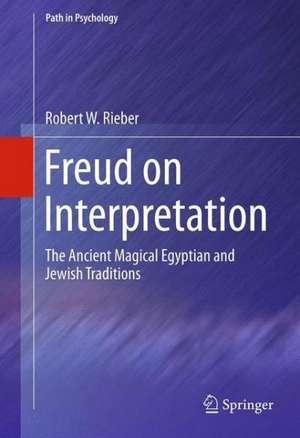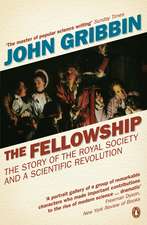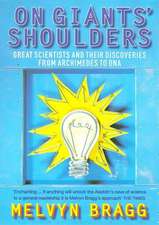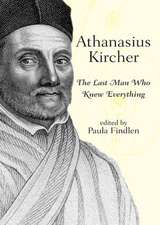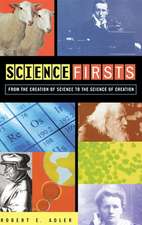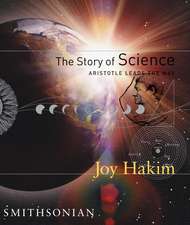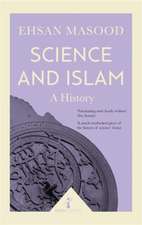Freud on Interpretation: The Ancient Magical Egyptian and Jewish Traditions: Path in Psychology
Autor Robert W. Rieberen Limba Engleză Paperback – 3 mar 2014
| Toate formatele și edițiile | Preț | Express |
|---|---|---|
| Paperback (1) | 634.32 lei 6-8 săpt. | |
| Springer – 3 mar 2014 | 634.32 lei 6-8 săpt. | |
| Hardback (1) | 640.71 lei 6-8 săpt. | |
| Springer – dec 2011 | 640.71 lei 6-8 săpt. |
Din seria Path in Psychology
- 5%
 Preț: 717.00 lei
Preț: 717.00 lei - 15%
 Preț: 644.95 lei
Preț: 644.95 lei - 15%
 Preț: 645.79 lei
Preț: 645.79 lei - 18%
 Preț: 1000.24 lei
Preț: 1000.24 lei - 15%
 Preț: 651.02 lei
Preț: 651.02 lei - 15%
 Preț: 641.85 lei
Preț: 641.85 lei - 18%
 Preț: 778.76 lei
Preț: 778.76 lei - 15%
 Preț: 661.48 lei
Preț: 661.48 lei - 5%
 Preț: 1416.66 lei
Preț: 1416.66 lei - 15%
 Preț: 643.48 lei
Preț: 643.48 lei - 15%
 Preț: 648.20 lei
Preț: 648.20 lei - 18%
 Preț: 1225.16 lei
Preț: 1225.16 lei - 5%
 Preț: 1095.90 lei
Preț: 1095.90 lei -
 Preț: 385.25 lei
Preț: 385.25 lei -
 Preț: 387.75 lei
Preț: 387.75 lei - 15%
 Preț: 644.63 lei
Preț: 644.63 lei - 15%
 Preț: 641.38 lei
Preț: 641.38 lei -
 Preț: 385.84 lei
Preț: 385.84 lei -
 Preț: 383.93 lei
Preț: 383.93 lei -
 Preț: 389.49 lei
Preț: 389.49 lei - 15%
 Preț: 635.96 lei
Preț: 635.96 lei -
 Preț: 393.74 lei
Preț: 393.74 lei - 15%
 Preț: 473.81 lei
Preț: 473.81 lei -
 Preț: 383.71 lei
Preț: 383.71 lei
Preț: 634.32 lei
Preț vechi: 746.26 lei
-15% Nou
Puncte Express: 951
Preț estimativ în valută:
121.37€ • 127.07$ • 100.43£
121.37€ • 127.07$ • 100.43£
Carte tipărită la comandă
Livrare economică 07-21 aprilie
Preluare comenzi: 021 569.72.76
Specificații
ISBN-13: 9781489996923
ISBN-10: 1489996923
Pagini: 176
Ilustrații: XXII, 154 p.
Dimensiuni: 155 x 235 x 9 mm
Greutate: 0.25 kg
Ediția:2012
Editura: Springer
Colecția Springer
Seria Path in Psychology
Locul publicării:New York, NY, United States
ISBN-10: 1489996923
Pagini: 176
Ilustrații: XXII, 154 p.
Dimensiuni: 155 x 235 x 9 mm
Greutate: 0.25 kg
Ediția:2012
Editura: Springer
Colecția Springer
Seria Path in Psychology
Locul publicării:New York, NY, United States
Public țintă
ResearchCuprins
The Origins and Groundwork of Psychoanalysis.- From the Pharaohs to Freud: Psychoanalysis and the Magical Egyptian Tradition.-Introduction.- Ancient Egyptian Creation Myths.- Ancient Egyptian Symbols, Magic and Free Association.- The Influence of Jewish Mysticism.- Moses and the Ancient Egyptians.- The Root of All Evil.- Freud and the Kabbala.- The Riddle of the Sphinx.- On Interpretation of Mind.- Introduction.- Interpretation Exemplified.- The Problem of the Red Dots.- Deciphering the Egyptian Hieroglyphics.- Interpretations Without a “Dictionary”.- The Reality of Fiction.- Durkheim’s Interpretation of Social Fact Warfare.- The Circle.- Interpretation and Biblical Exegesis.- Popper’s Third World and Natural Law.- Thermodynamics and Information.- Logic of Interpretation.- The Human Mind as Object of Interpretation.- A History of the Rorschach Test and an Analysis of Bookplates of Famous Psychologists.- Preface.- Thomas Bray (1656-1730).- George Berkeley (1685-1753).- Samuel Johnson (1696-1772).- William James (1842-1910).- Sigmund Freud (1856-1939).- A. A. Brill (1874–1948).- G. Stanley Hall (1844-1924).- James Mark Baldwin (1861-1934).- Mary Whiton Calkins (1863-1930).- Lillien Jane Martin (1851-1943).- Robert M. Yerkes (1876-1956).- Edward Tolman (1886-1959).- Smith Ely Jelliffe (1866-1945).- Charles Kay Ogden (1889-1957).- Clark Leonard Hull (1884-1952).- Alexander Melville Bell (1819-1905).- Appendix I: Books from Freud’s Library on Ancient Egypt.- Is Frued A Determinist?.- Comments on Freud and Determinism by David Forrest.
Textul de pe ultima copertă
Freud on Interpretation
The Ancient Magical Egyptian and Jewish Traditions
Robert W. Rieber, in collaboration with David Bakan
In its early days, some saw psychology as a substitute for religion. Others regarded it as a new religion in its own right. What was less obvious to most observers--and far less obvious today--were the roots of Freud's work in the ancient mystical teachings of the Middle East.
A unique analysis, Freud on Interpretation examines the inner workings of his thought process and the rich mine of knowledge that led him toward his theories and therapies. In the beliefs of ancient Egypt, with its sexually ambiguous dieties, and ancient Israel, with its Biblical accounts of madness and feigned madness, are found surprising sources of inspiration for such core Freudian concepts as free association, dream interpretation, the psychosexual stages, the libido, and the unconscious. Psychoanalyis here is seen in its early growth stages, fed and nurtured by philosophers, scientists, and fearless mind explorers; and Freud is boldly synthesizing modes
of knowledge from an age when science and superstition were rarely separate. This compelling volume:
Considers the real meaning behind Freud's self-identification as a determinist.
The Ancient Magical Egyptian and Jewish Traditions
Robert W. Rieber, in collaboration with David Bakan
In its early days, some saw psychology as a substitute for religion. Others regarded it as a new religion in its own right. What was less obvious to most observers--and far less obvious today--were the roots of Freud's work in the ancient mystical teachings of the Middle East.
A unique analysis, Freud on Interpretation examines the inner workings of his thought process and the rich mine of knowledge that led him toward his theories and therapies. In the beliefs of ancient Egypt, with its sexually ambiguous dieties, and ancient Israel, with its Biblical accounts of madness and feigned madness, are found surprising sources of inspiration for such core Freudian concepts as free association, dream interpretation, the psychosexual stages, the libido, and the unconscious. Psychoanalyis here is seen in its early growth stages, fed and nurtured by philosophers, scientists, and fearless mind explorers; and Freud is boldly synthesizing modes
of knowledge from an age when science and superstition were rarely separate. This compelling volume:
- Overviews the pre-Freudian history of psychology in the writings of Herbart, Morel, and Krafft-Ebing.
- Probes Freud's interest in ancient Eygptian creation myths and the Kabbala, and their influence on his work.
- Explores the paradoxes inherent in the interpretation of the mind.
- Offers unique insights into the origins of the Rorschach test.
- Includes a listing of Freud's library of titles on ancient Egypt.
Freud on Interpretation is stimulating reading for clinical psychologists and thoseinterested in the intellectual and professional development of the master psychiatrist.
Caracteristici
New interpretation of historical influences on Freud’s thinking Examination of ancient cultural traditions embedded in contemporary 19th century science Special feature on the selection of bookplates in Freud’s circle and their meaning Insights into key issues of interpretation of the mind Includes supplementary material: sn.pub/extras
